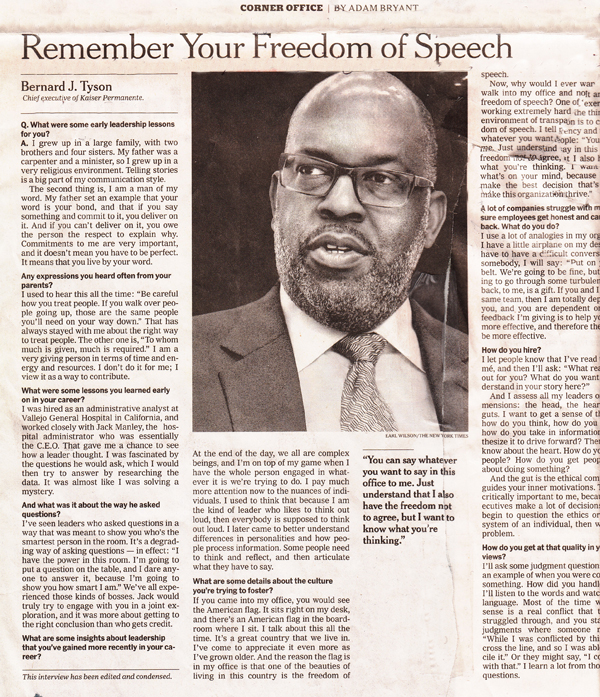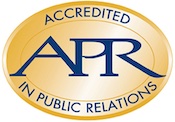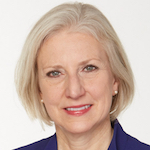Bernard Tyson, CEO of Kaiser Permanente, the $48 billion California healthcare colossus, sings the praises of “freedom of speech” in a four-column feature in the Sunday Nov. 10 New York Times, saying, “You can say whatever you want to say in this office to me.”
But when this reporter told his SVP-PR Diane Gage Lofgren last September that she was giving conflicting instructions to PR Society of America Assembly delegates about the “unconference” she had set up for the Assembly, we got threatened with legal action by KP instead of winning a hearing by Gage Lofgren.
 Anne Deibert, senior legal counsel of KP, sent via e-mail and regular mail charges that we had made “certain unfounded and unfair allegations regarding Kaiser Permanente and Ms. Gage Lofgren and her work with PRSA. We view these unfair statements as potentially damaging to the reputations of Kaiser Permanente and our valued employees.”
Anne Deibert, senior legal counsel of KP, sent via e-mail and regular mail charges that we had made “certain unfounded and unfair allegations regarding Kaiser Permanente and Ms. Gage Lofgren and her work with PRSA. We view these unfair statements as potentially damaging to the reputations of Kaiser Permanente and our valued employees.”
The letter further accused us of “sending harassing e-mails and making unfounded and inflammatory statements.” We were advised to consult our “legal counsel.” Harassment is a crime punishable by fines and jail sentences in some states.
Gage Lofgren, a national board member of the Society, herself would not respond to us.
We should have made our complaint to Tyson. He would have listened to us. Maybe he will listen to us now. He has been sent a letter on this matter.
Gage Lofgren Contradicted Herself
Gage Lofgren at first described her planned “unconference” as an opportunity for delegates to post any ideas they wanted to on bulletin boards.
But she they wrote on the Society website that her team “has already hosted a handful of meetings to bring together a list of Assembly objectives and themes that we’d like the unconference participants to have in mind.” Her team wanted the delegates to focus on ways to build membership.
Assembly delegates are supposed to be independent and not like sheep herded from place to place.
An even worse aspect of this, and one that involves freedom of the press, because those in favor of “free speech” must also be in favor of a free press to cover what is said, is the fact that the entire Assembly, from gavel-to-gavel, was barred to the press. This flew in the face of more than 40 years of the Assembly not only being open to press coverage, but a word-for-word transcript being made available to press and members for a number of years until 2005.
KP, the “premiere sponsor” of the 2012 conference at the San Francisco Marriott Marquis, has some of the responsibility for how that meeting was conducted and whether press access was allowed.
Gage Lofgren did not provide a description of her three-hour Oct. 13, 2012 “unconference” until March 5, 2013, or more than four months later. We would have had a report ready the day after the Assembly, as was our usual practice.
Tyson should also know that O’Dwyer reporters were banned from all aspects of the 2012 conference and not allowed in the hotel at all after the first day.
Treatment of O’Dwyer reporters at the Philadelphia Downtown Marriott Oct. 26-28 was the opposite of that. We were allowed to set up a desk in the lobby in front of the restaurant and by an escalator and were treated with the utmost courtesy and civility. Hotel personnel said anyone who enters the lobby, whether a guest or not, is treated courteously. Our treatment was not a function of being a registered guest.
Retraction of “Harassing” Charge Is Asked
We would like Tyson’s office to look into this matter and if it does, it will retract the charge that by questioning Gage Lofgren we were harassing her. Reporting is not a criminal activity.
Tyson was most emphatic about letting people have their say.
He notes that there is an American flag that “sits right on my desk” and there’s “an American flag in the boardroom where I sit.”
Her further says: “And the reason the flag is in my office is that one of the beauties of living in this country is the freedom of speech. Now, why would I ever want anyone to walk into my office and not exercise the freedom of speech? One of the things I am working extremely hard on is to create an environment of transparency and freedom of speech. I tell people: ‘You can say whatever you want to say in my office. Just understand that I also have the freedom to disagree.’”
Why didn’t Gage Lofgren discuss this matter with us instead of having the legal department send us a threatening letter?
Bridging the gap between legal and PR concepts was the subject of two break-out sessions at the 2013 conference in Philadelphia.
The bio of one panelist, lawyer Michele Jalbert, says she is “uniquely positioned to help bridge the gap between two often adversarial interests within organizations—PR professionals and lawyers.” We were barred from the two sessions and have yet to find out what advice was given.
Our recent experience is that legal takes precedence over PR considerations in many cases. Legal is certainly dominant at the PR Society which has spent $581,608 on law firms in the past nine years.


 PRSA-NY today announced its five honorary co-chairs for its Big Apple Awards ceremony gala slated for TAO Downtown on Nov. 15.
PRSA-NY today announced its five honorary co-chairs for its Big Apple Awards ceremony gala slated for TAO Downtown on Nov. 15. PRSA-NY president Carmella Glover today issued a "heartfelt apology" on behalf of the chapter for her Oct. 14 message that "caused disappointment and hurt to some of our valued members."
PRSA-NY president Carmella Glover today issued a "heartfelt apology" on behalf of the chapter for her Oct. 14 message that "caused disappointment and hurt to some of our valued members." The leadership of Public Relations Society of America is backing a move to change the current “must-have” APR accreditation to “strongly preferred” as a requirement for a seat on its board of directors.
The leadership of Public Relations Society of America is backing a move to change the current “must-have” APR accreditation to “strongly preferred” as a requirement for a seat on its board of directors. Public Relations Society of American today named Linda Thomas Brooks CEO, succeeding CFO Phil Bonaventura, interim chief since July 2019.
Public Relations Society of American today named Linda Thomas Brooks CEO, succeeding CFO Phil Bonaventura, interim chief since July 2019.


 Have a comment? Send it to
Have a comment? Send it to 
No comments have been submitted for this story yet.